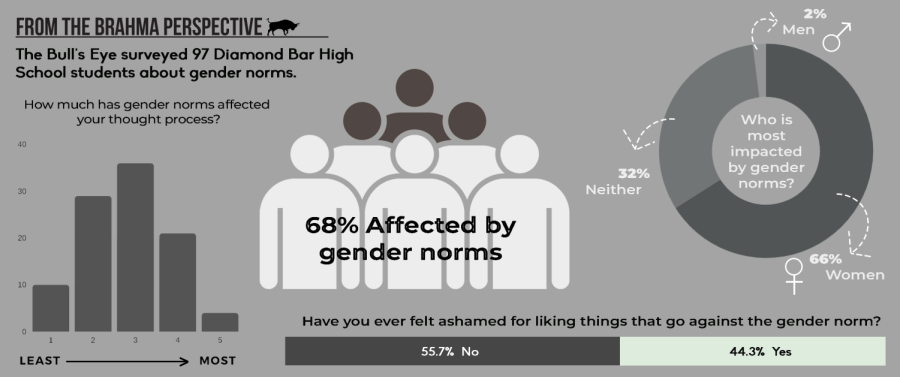Eye of the Editor: Society Expectations
As if disproportionate domestic responsibilities and professional disadvantages weren’t enough for women to look forward to, society has waged war against developing teenage girls, ruthlessly tearing apart any interests they may have.
It is difficult to think of even one hobby a teenage girl may have that she would not be criticized for. If she is into fashion or makeup, she is shallow and vain, only chasing male attention. But if she likes sports and video games, she is trying too hard to set herself apart from other girls, and therefore looks down on other women. The resounding conclusion to these impossible expectations is that pursuing a genuine interest while fulfilling societal standards is completely unattainable for teenage girls.
This is a prominent culture, only perpetuated by social media platforms such as Twitter and TikTok, and is solely based around hating on teenage girls for everything they do. Such behavior has its roots in the rise of “fangirl” culture around the early 60s, when the world found it appropriate to berate young women for their seemingly obsessive behaviors over boy bands and musical artists.
But aren’t these behaviors awfully similar to the behaviors of men who are fans of professional sports teams? Men who become overly emotional and develop parasocial relationships with athletes, mirroring the very same behaviors they relentlessly shame women for?
It is important to recognize the apparent double standard applied to women, yet not men who invest in their interests. If a man likes a certain sports team, he is passionate and loyal. But if a woman is a huge fan of the Korean boyband BTS, she is delusional and disturbed.
During one’s developmental years, this constant push and pull only adds on to the stressors that every high schooler must deal with. In an effort to fit in, while also not succumbing to the status quo in fear of being seen as “basic,” it has become increasingly difficult for teenage girls to discover and pursue their true passions and interests.
Teenage girls must be incredibly vigilant in order to discern their own opinions on topics, from the taint of the taunts surrounding them.
Unfortunately, these standards and stereotypes do not end after high school. In their adult years too, it is difficult for women to find hobbies that are perceived as mature and feminine—but not too feminine of course. Eventually, women are forced to acknowledge that nothing is fully socially acceptable and that they must consent to living under societal scrutiny in exchange for simply indulging in their interests.
All of these behaviors are driven by a sentiment so often echoed throughout our society: “You’re not like other girls.” This common phrase is often delivered as a compliment, posing the obvious question: What is so bad about “other girls”?
Your donation will support the student journalists of Diamond Bar High School. Your contribution will allow us to purchase equipment and cover our annual website hosting costs.



